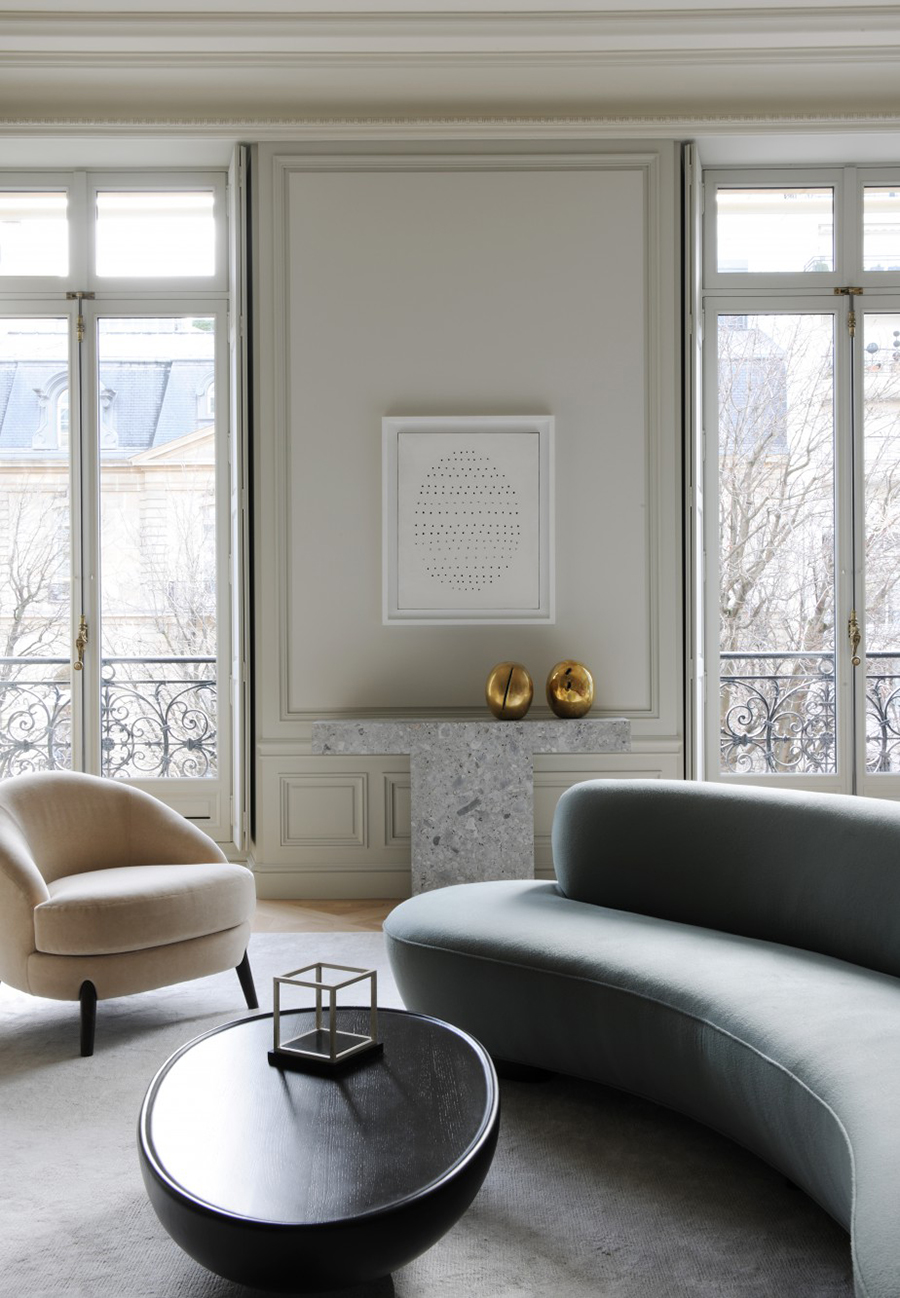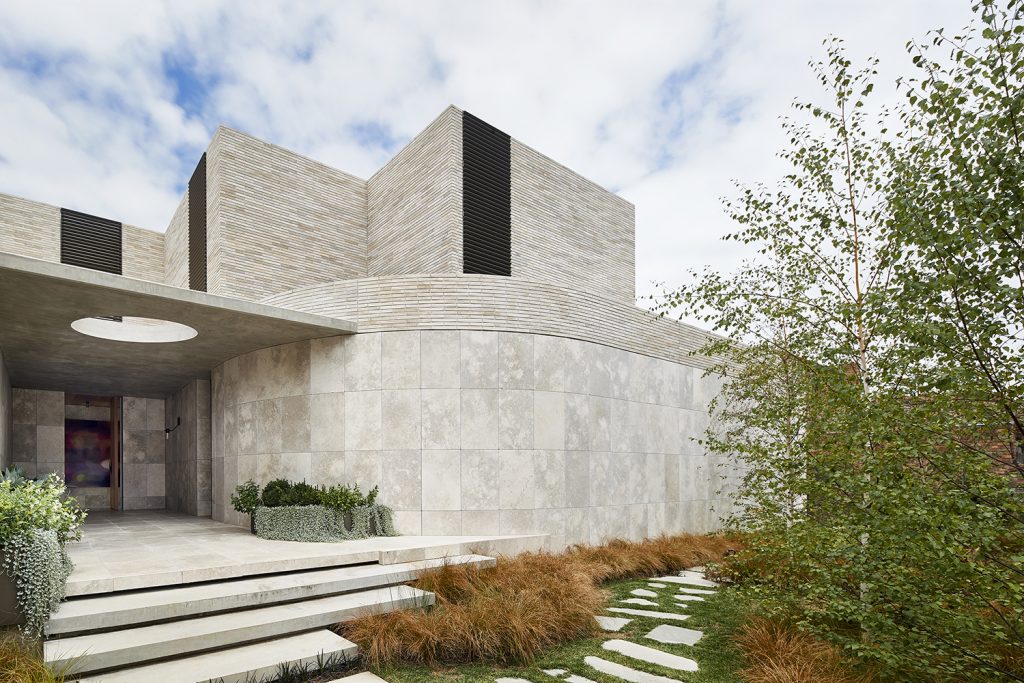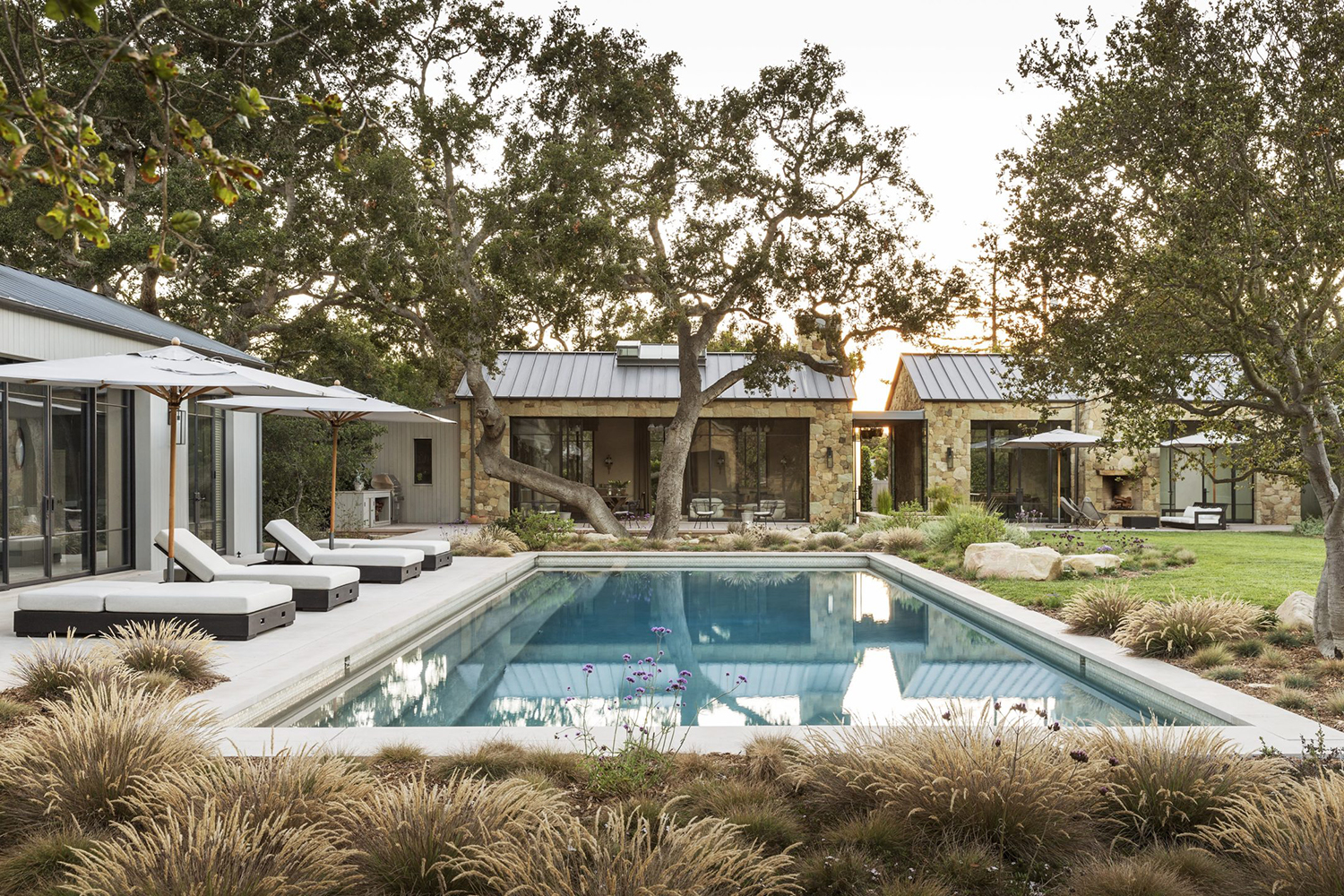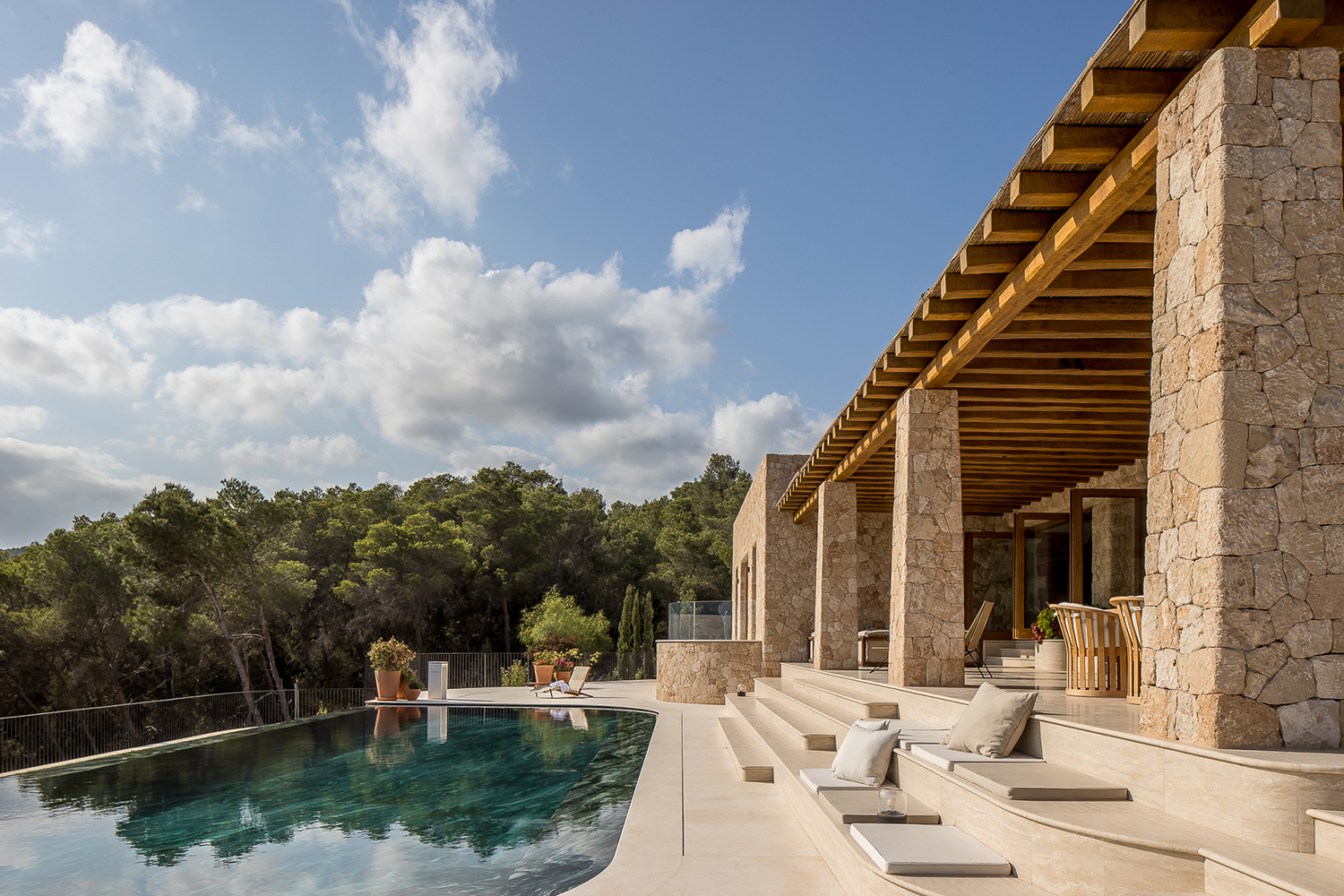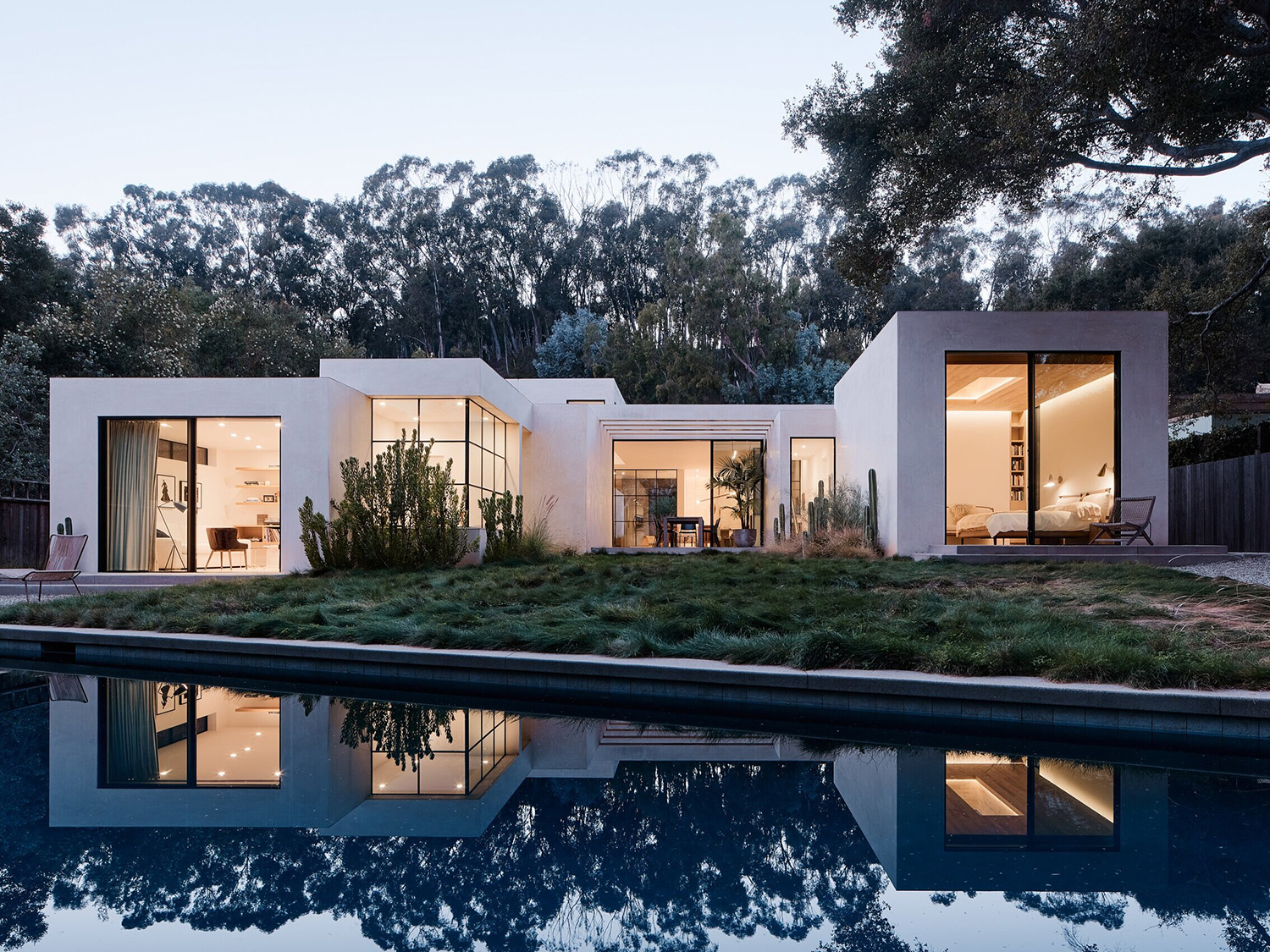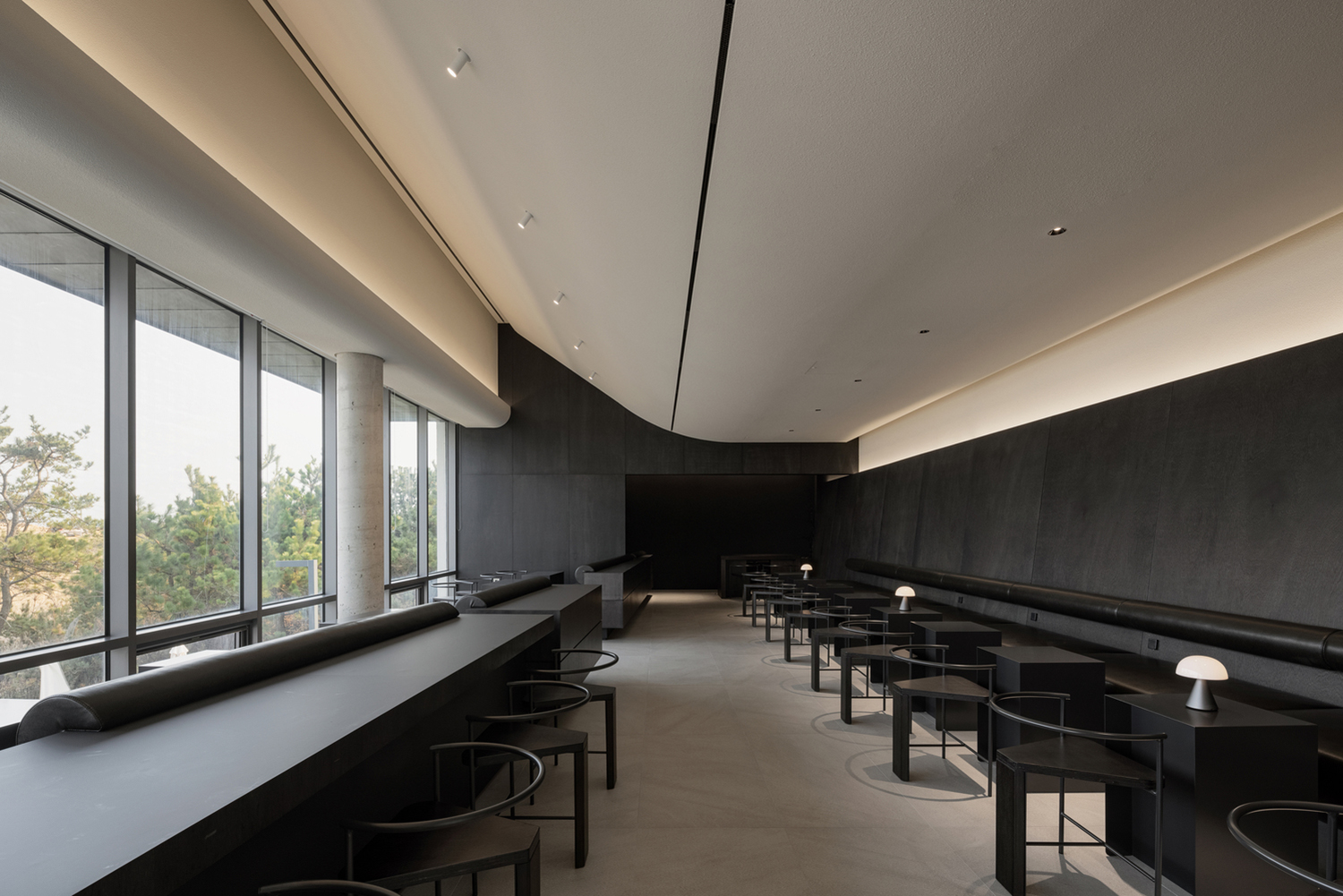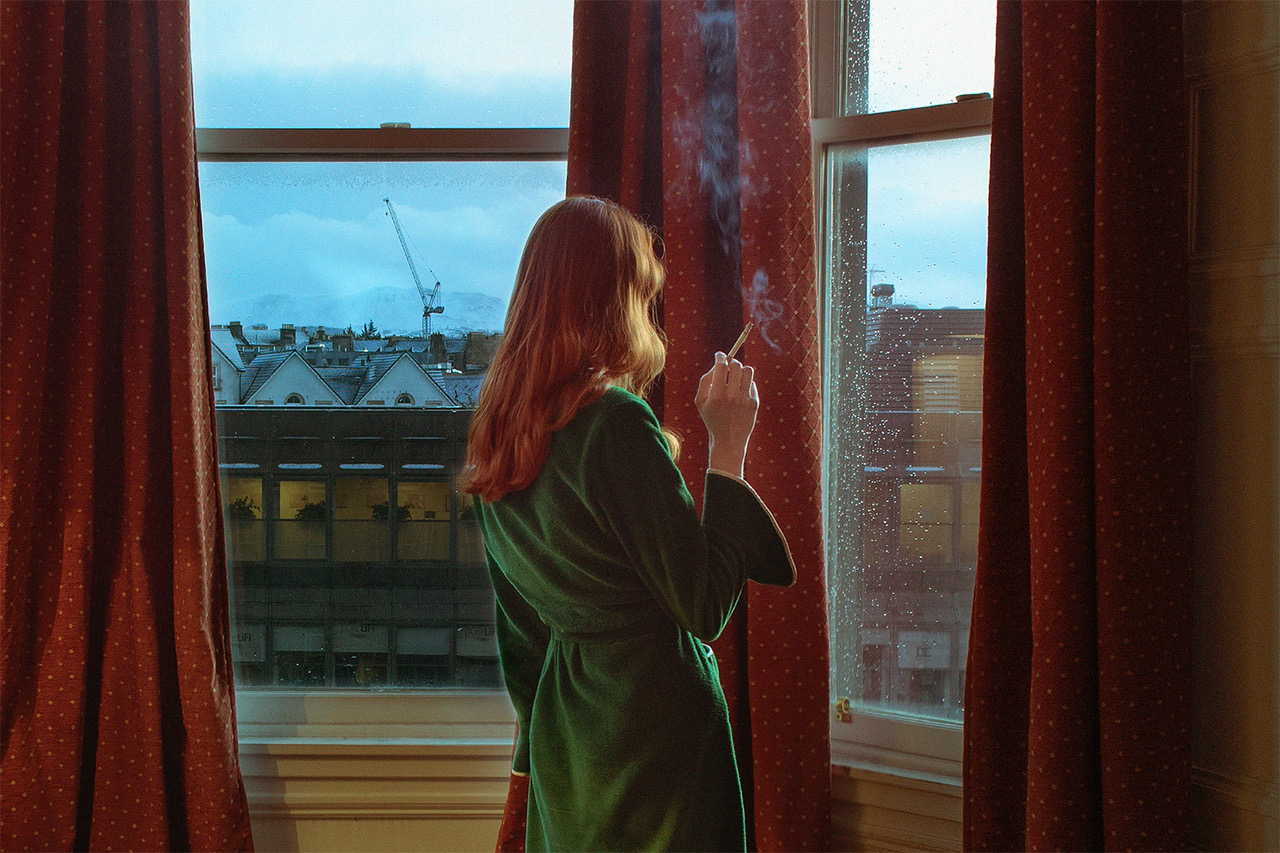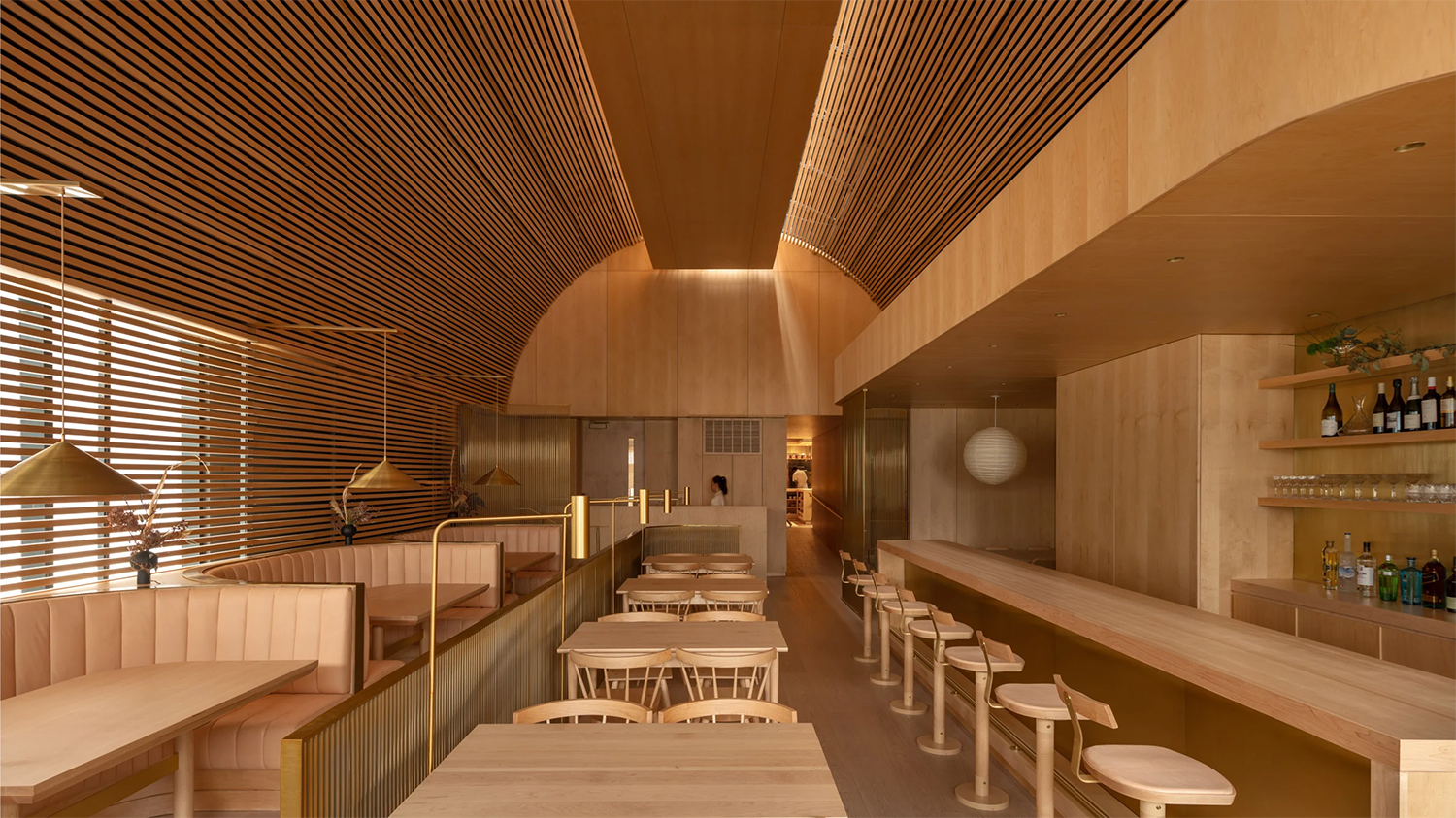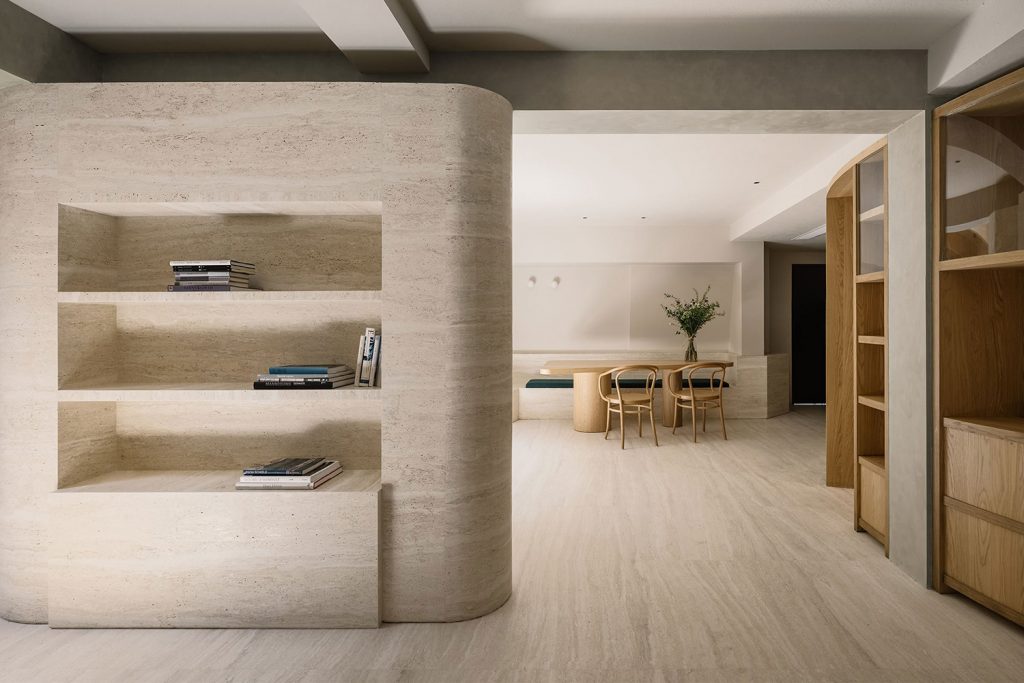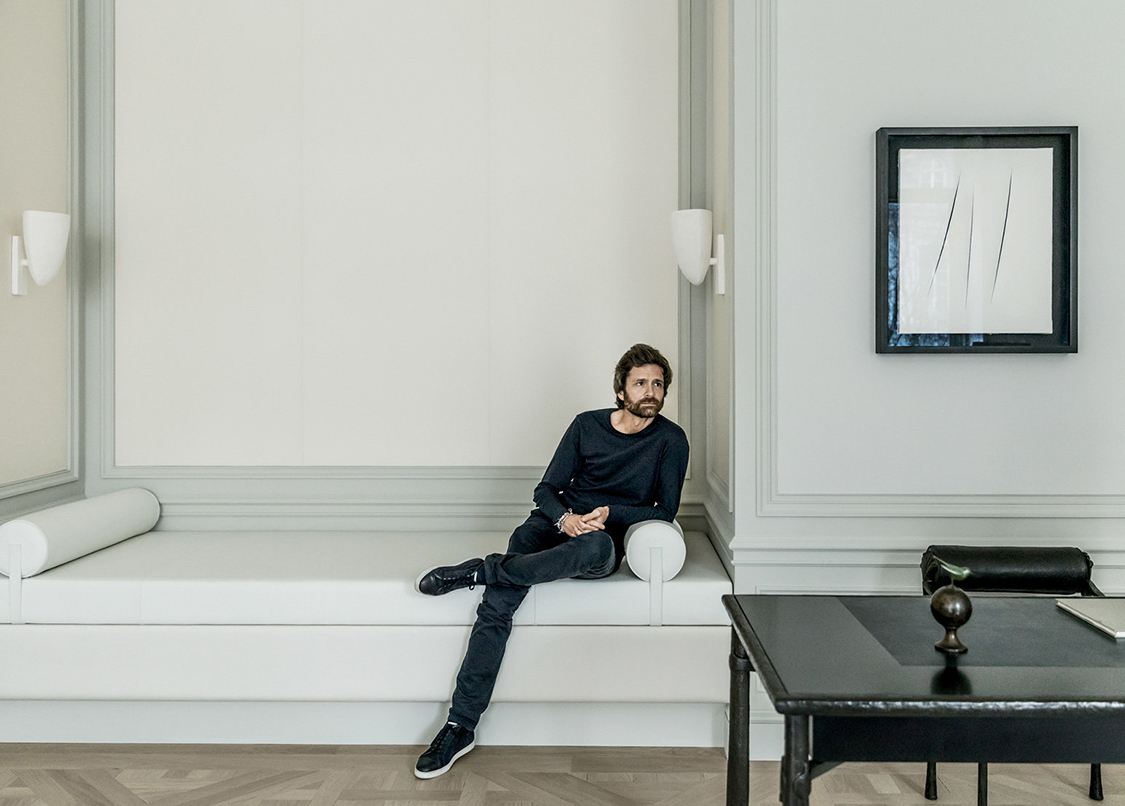
In long-ago times, artists, sculptors, designers, architects – if they were supremely lucky – gained a benefactor, a royal patron, a life-saver and could stop starving.
But those patronages often came with tight restrictions and rules. Most of the time, you created what and how the patron wished.
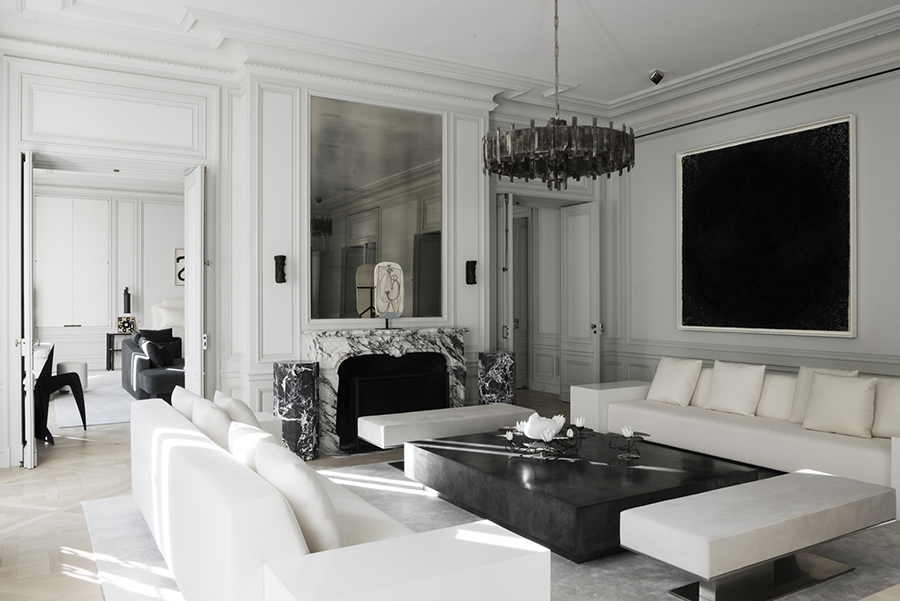
And of course, the same goes on even today. A wealthy client, whether corporate or individual, wants things his or her way.
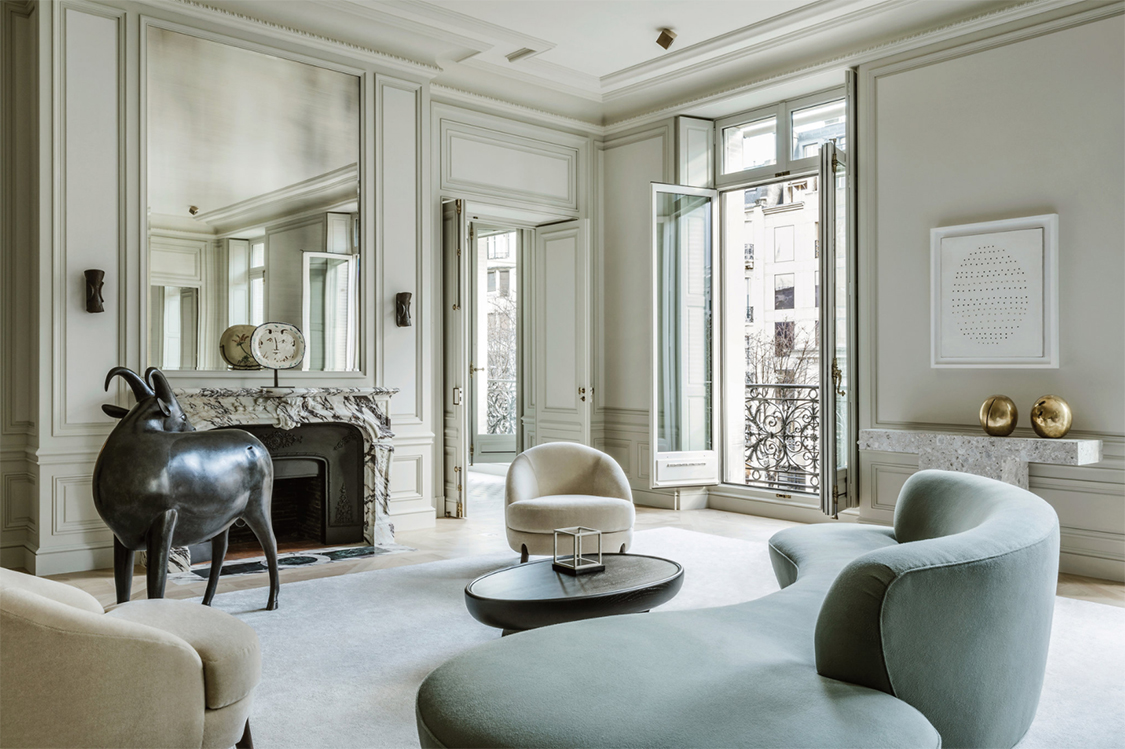
Three years ago, Parisian designer and architect Joseph Dirand, however, found himself in a situation quite unlike this.
An heiress of an Eastern European fortune just happened to have two large apartments on Paris’s Avenue Montaigne alongside the lavish emporiums of every luxury fashion brand in the world.
Dirand was presented with a more-or-less unlimited budget, complete creative freedom and two apartments totalling 6,500 square feet (600-plus square metres).
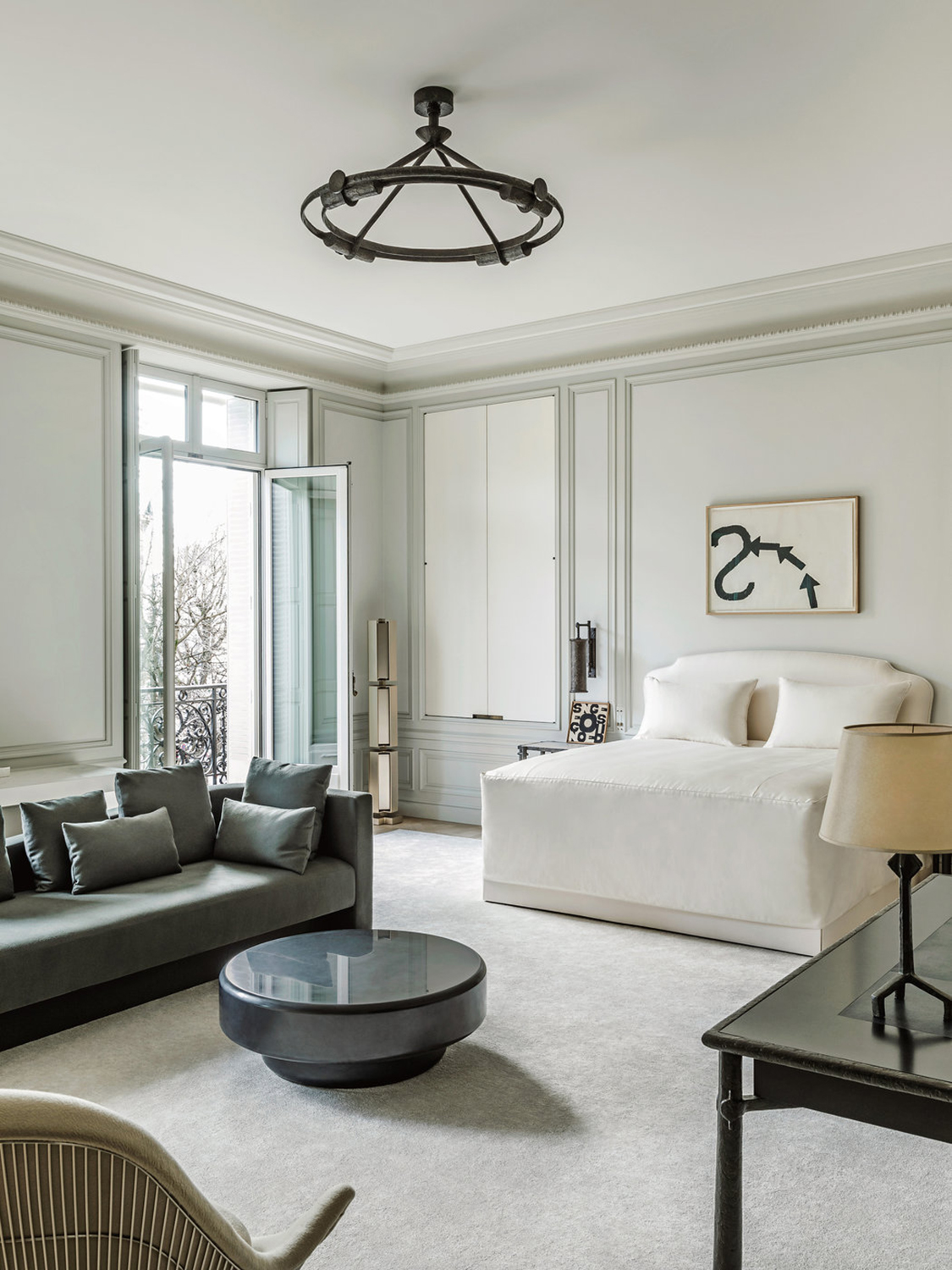
The 19th-century luxury space – while at least in theory a residence – didn’t even have to be resident-friendly or liveable. The patron has so far, apparently, visited once.
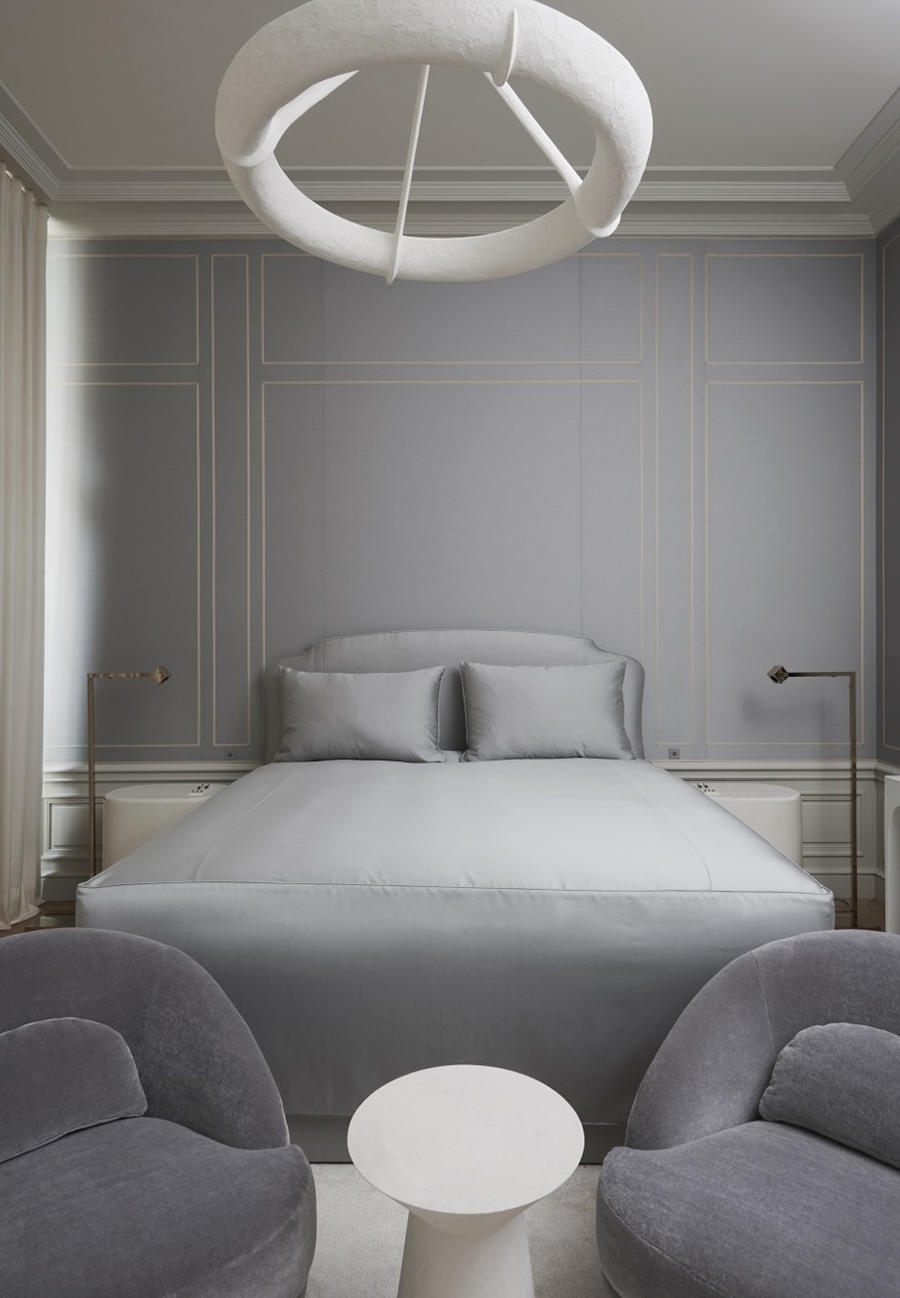
But she knew what she was doing when selecting Dirand. He is a star-designer and architect known for elegant store design for Balmain, Balenciaga, Givenchy, Chloe and Pucci as well as hotels, restaurants and residences globally. He has a supremely confident sense of what belongs and what doesn’t.
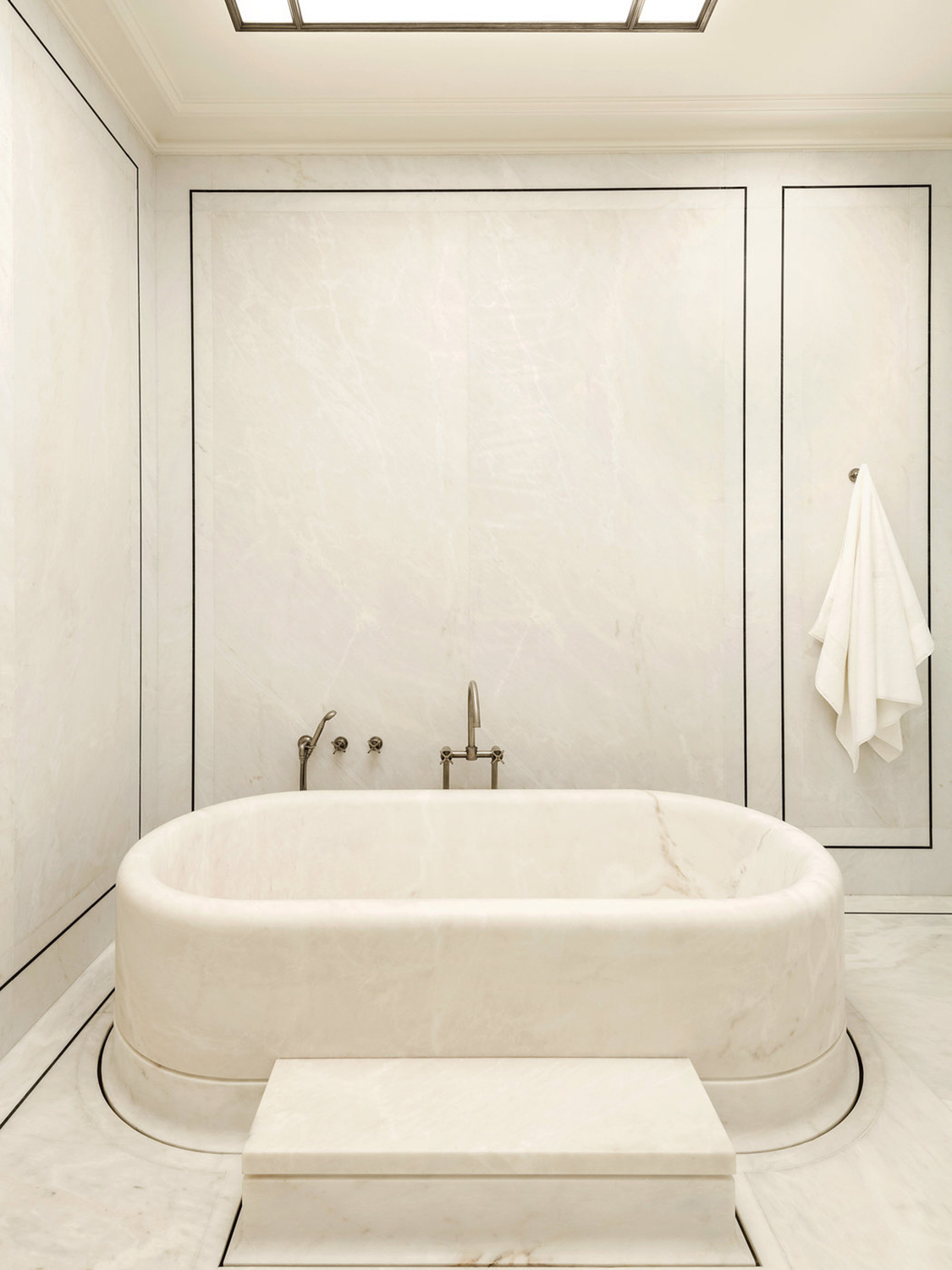
In this Paris apartment, his design sensibilities take a bold stand by setting a dramatic but highly minimalist stage and then filling it just so with a precise and determined collection of art, artefacts and materials.
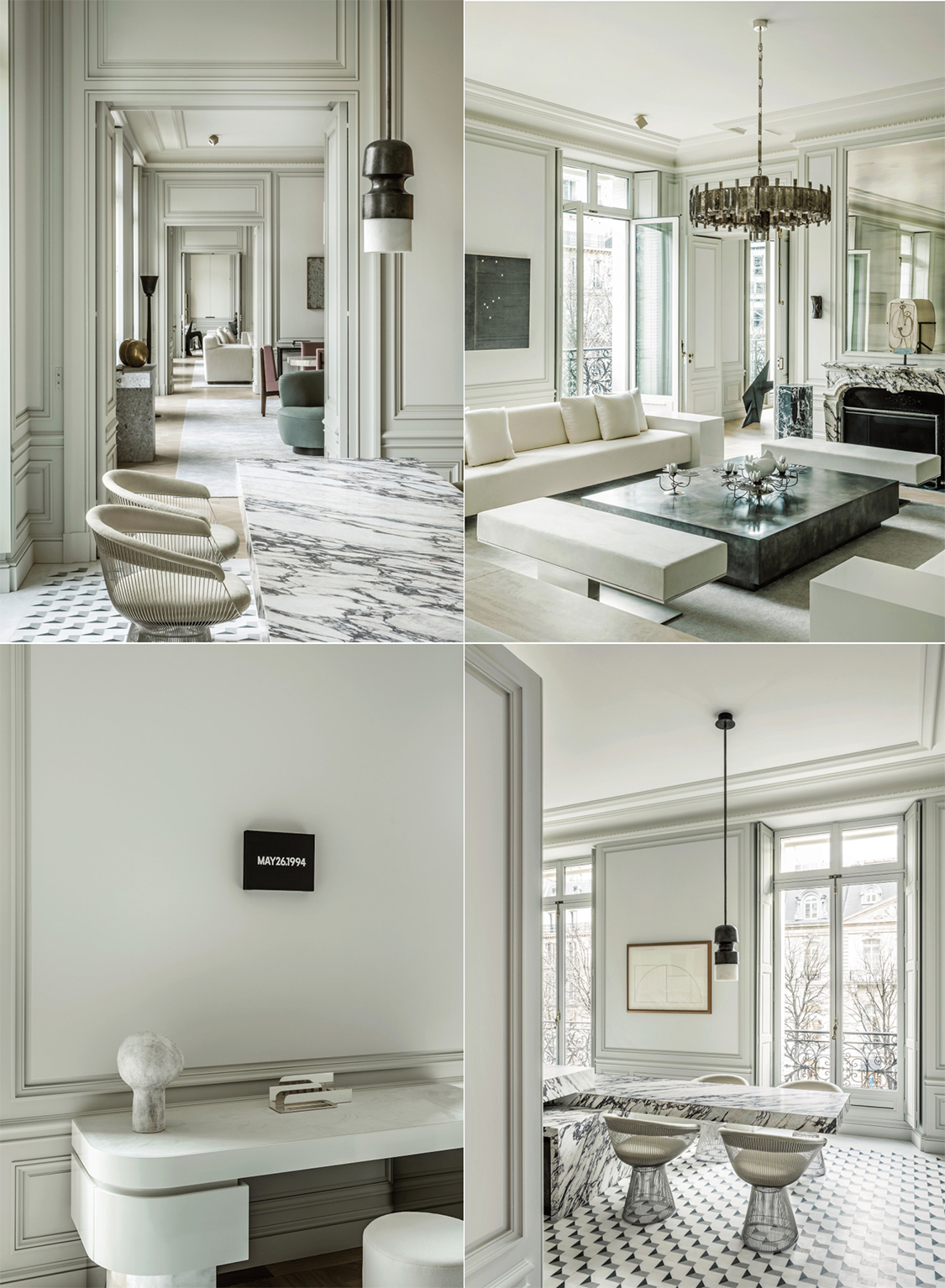
It is characterized by the colour white with black definition, marble and wood, and a Dirand-curated art and furniture collection that would seem more than sufficient to earn the apartment the designation of a gallery. A dream assignment, we suspect, for both the patron and the designer. Tuija Seipell.
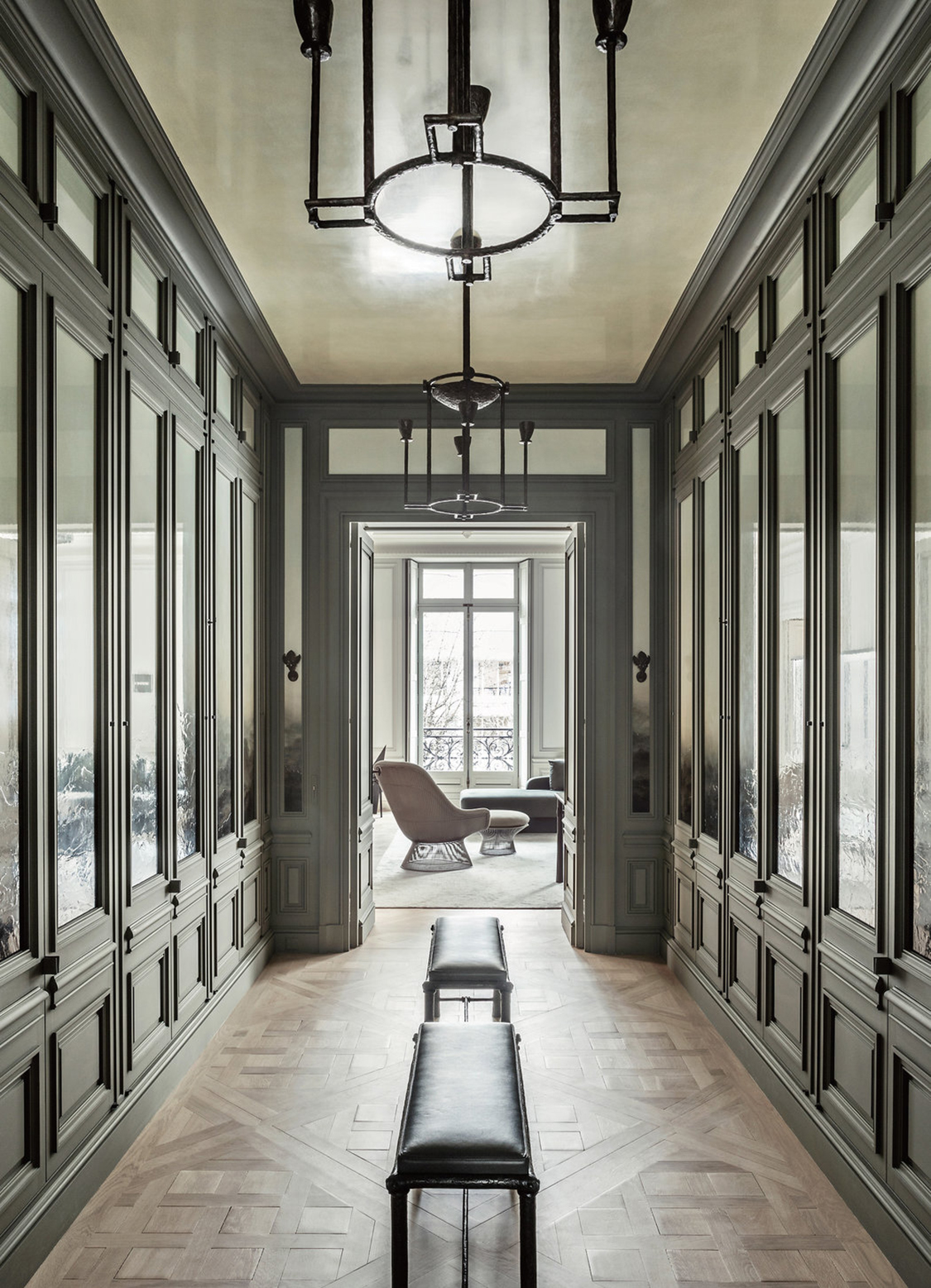
Photograph by Martin Morrell (via NYT)
